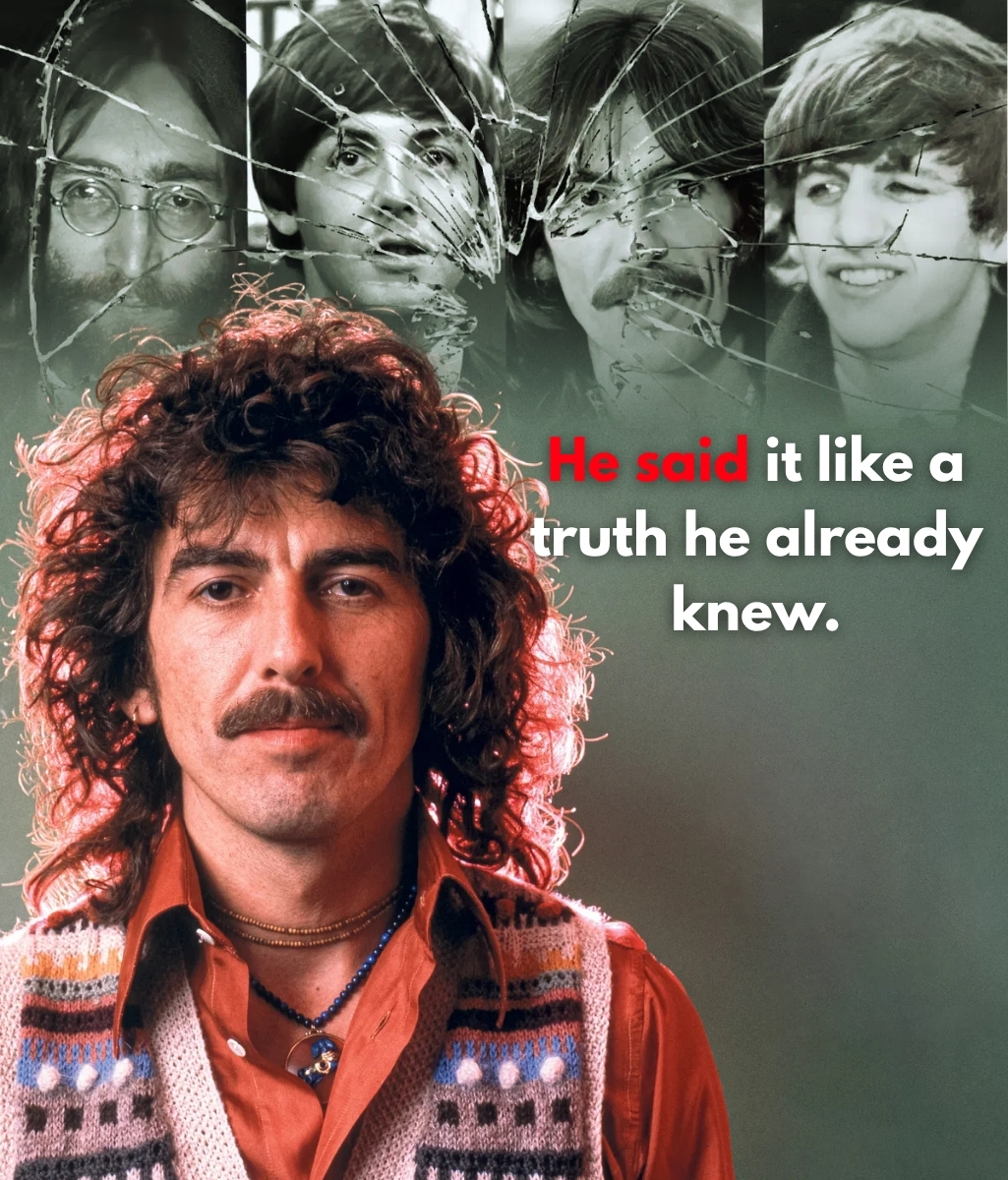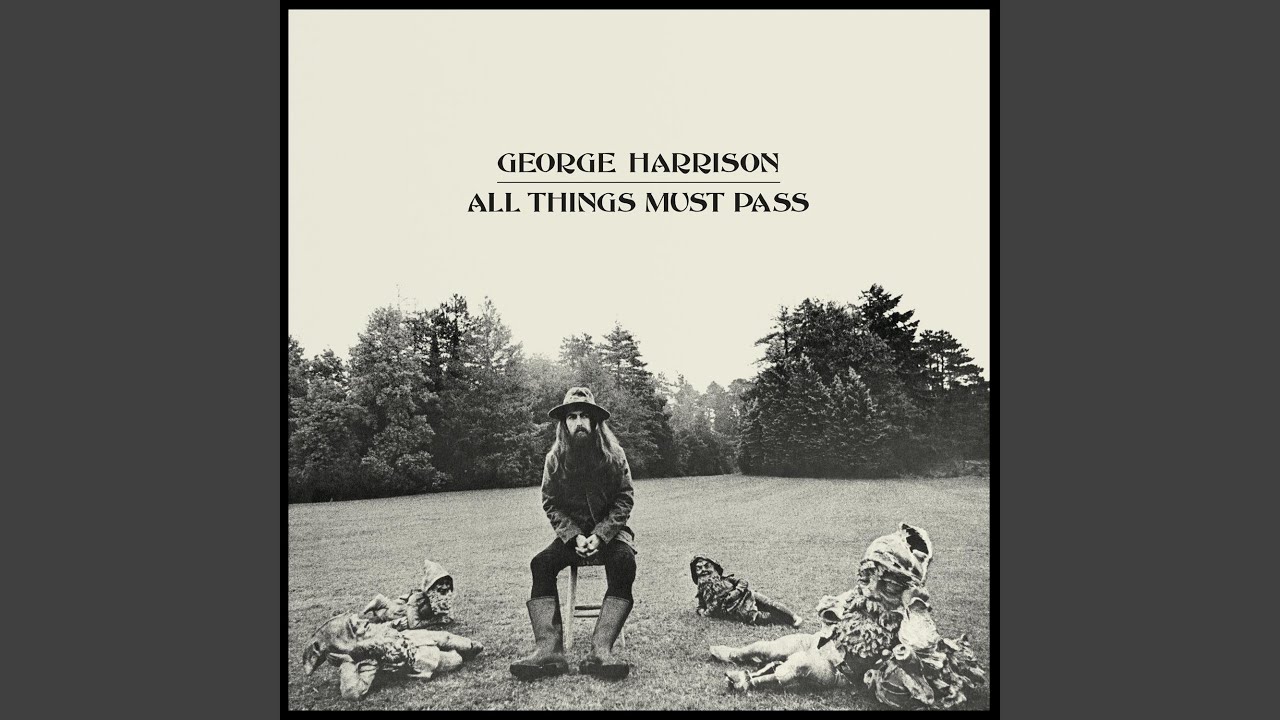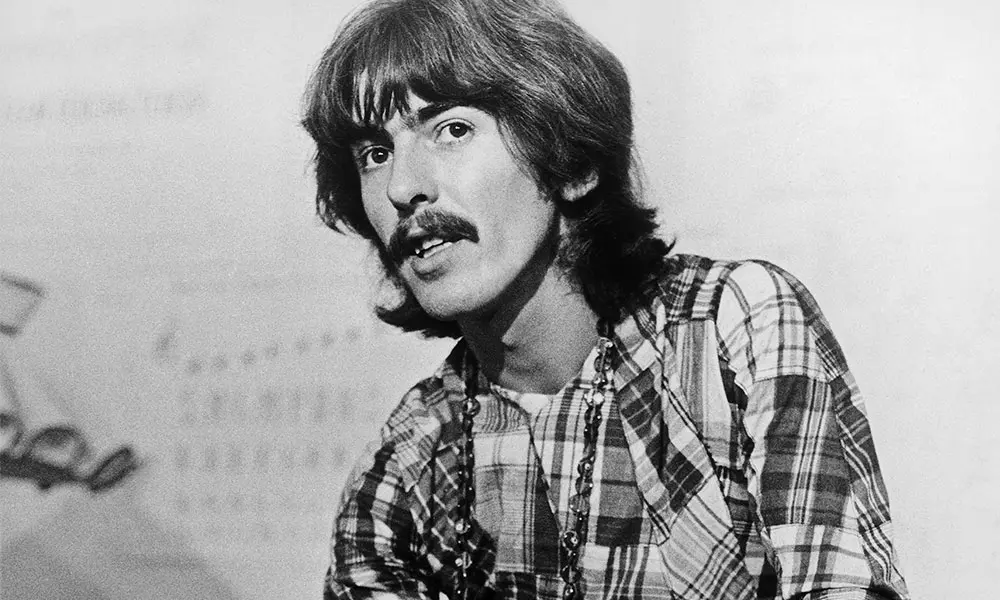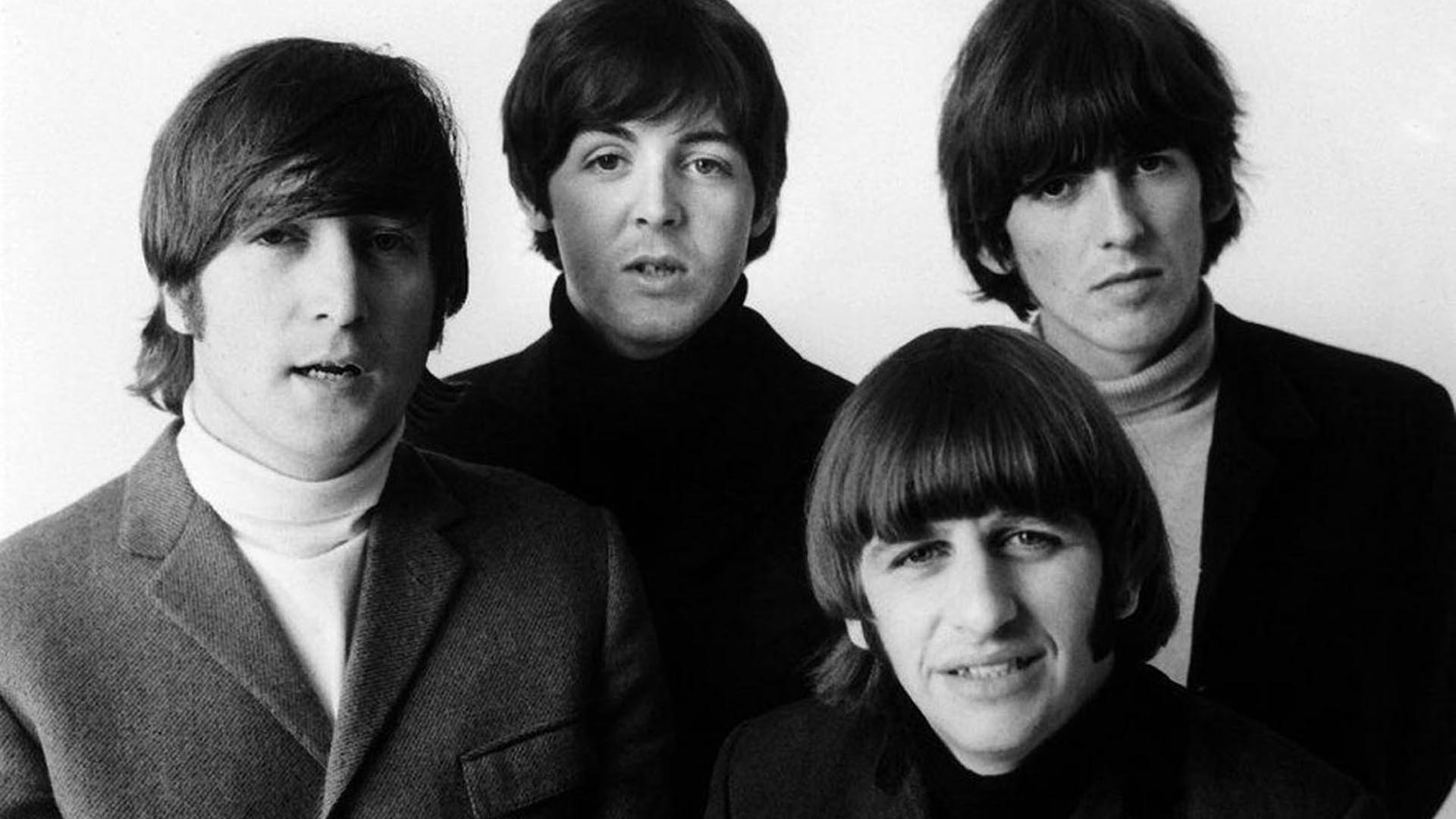
There was a moment — small, quiet, and almost forgotten. It was January 1969 at Twickenham Studios, the cold warehouse where The Beatles were rehearsing what would become Let It Be. Cameras rolled, tempers simmered, and the magic that had once united them felt perilously thin. Amid the tension, George’s gentle voice rose, carrying a melody full of resignation and light.
The chords hung in the air, fragile yet certain. It was a song about impermanence, about learning to let go — a truth he seemed to understand long before anyone else. But the room was indifferent. John and Paul barely looked up from their guitars. Ringo listened quietly, perhaps recognizing the grace in it, but said nothing. The song drifted away, unclaimed, uncelebrated.

💬 “It’s all right,” George murmured softly, half to himself. “Everything must pass.”
He said it like a truth he already knew — and perhaps he did. For years, George had lived in the long shadows of Lennon and McCartney, the “quiet Beatle” who contributed brilliance only in rare moments when space was granted. Songs like While My Guitar Gently Weeps and Here Comes the Sun had proven his mastery, yet in that cold Twickenham warehouse, his new composition went largely unheard.

When The Beatles finally dissolved the following year, it was both a heartbreak and a liberation. For George, the end of the band was not the closing of a door but the opening of a long-awaited one. Alone for the first time in over a decade, he returned to that abandoned melody — the one no one had wanted — and began to build around it something vast, something sacred.
Working with producer Phil Spector, George poured his soul into what became the triple album All Things Must Pass. It was ambitious, sprawling, and deeply human. The title track, once ignored by his bandmates, now stood as its beating heart — a hymn to acceptance, forgiveness, and the beauty of impermanence.
💬 “Sunrise doesn’t last all morning,” he sang, his voice steady, serene. It wasn’t a lament. It was a release.

The song’s message resonated far beyond its time. When it was finally released in late 1970, the world — reeling from the breakup of The Beatles — found comfort in George’s quiet wisdom. Here was a man who had turned rejection into redemption, pain into peace. What The Beatles had dismissed as too reflective, too gentle, too spiritual, became one of the greatest post-Beatles achievements of all.
Critics hailed All Things Must Pass as a revelation, and fans embraced it as the album The Beatles never made — not because it sounded like them, but because it transcended them. It carried the grace of letting go, the faith that endings can also be beginnings.
George never spoke bitterly of that moment at Twickenham. He didn’t need to. The music had spoken for him.
In the end, All Things Must Pass was not a song of revenge or regret. It was a benediction — a farewell whispered with love to all that fades.
Everything passes. But some songs — and some souls — never fade.